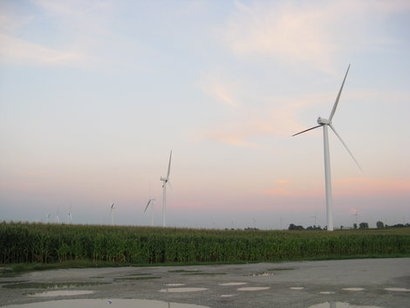
According to the EEA report Renewable energy in Europe – approximated recent growth and knock-on effects,greenhouse gas emissions in Europe could have been 7 percent higher in 2012 than they were if it hadn’t been for deployment of renewable energy projects. Furthermore, the report also finds that renewable technologies increase energy security, such that without deployment, fossil fuels consumption by the EU would also have been 7 percent higher in 2012.
The most displaced fossil fuel has been coal, where consumption would have been 13 percent higher. Natural gas would have been 7 percent higher at a time when European gas reserves are depleting.
“Renewable energy is quickly becoming one of Europe's great success stories” said Hans Bruyninckx, EEA Executive Director. “We can go even further: if we support innovation in this area it could become a major motor of Europe's economy, bringing down emissions while creating jobs.”
Policies and measures designed to reduce emissions, improve energy efficiency and stimulate the deployment of renewable energy have all played a role in reducing Europe’s emissions alongside renewable energy. Other drivers include changing economic factors and shifts to less-polluting types of fuels.
According to EEA estimates, final consumption of renewable energy increased in all member states in 2013 with the share of renewables at EU level increased to almost 15 percent by 2013. This means that the EU was ahead of its target set by the Renewable Energy Directive. By 2020, the EU aims to generate at least 20% of its energy using renewable sources, rising to 27% by 2030.
In Sweden, Latvia, Finland and Austria renewable energy made up more than a third of final energy consumption in 2013 while in Malta, Luxembourg, Netherlands and the UK renewables were all below 5 percent.
The renewable heating and cooling market sector contributed most towards overall renewable energy in the EU in 2013. However, renewable electricity is growing faster. In contrast, the use of renewable energy sources in transport fell in 2013 in about half of the EU Member States and also at EU level.
According to the European Commission's Energy Roadmap 2050 Europe expects to increase its share of renewables to between 55 to 75 percent of final energy consumption by mid-century in order to meet ambitious decarbonisation targets.
For additional information:

